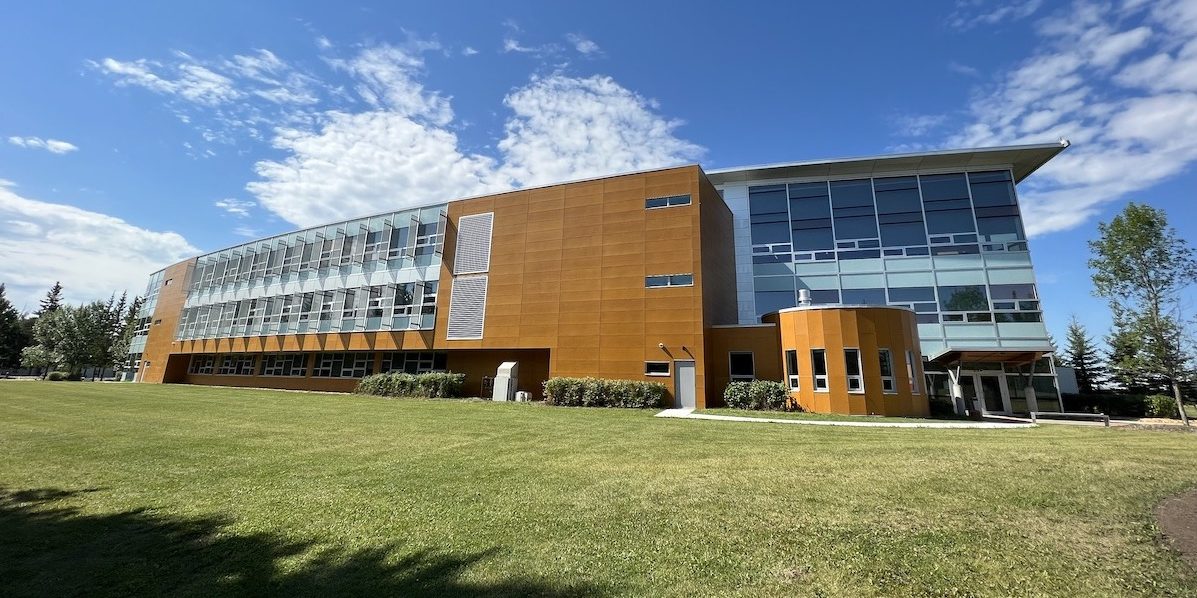Advanced Education Minister Demetrios Nicolaides indicated Thursday he hasn’t changed his mind about requiring Athabasca University (AU)’s nine top executives to move to the town of Athabasca.
He told a virtual meeting of the Athabasca University Board of Governors Thursday afternoon that one of the “performance metrics” in the draft investment management agreement (IMA) he insists the board sign by next Wednesday is that 100 per cent of the AU’s executive positions are based in Athabasca by 2025.
None of the university’s executive employees are thought to live in Athabasca at present. Given the current executive job market, it’s likely most could find employment elsewhere if they’re determined not to relocate to the community of 2,800 souls 145 kilometres north of Edmonton.
In a public session before the start of the in camera meeting, Nicolaides also indicated he still wants a substantial portion of the distance-education institution’s staff to live and work in Athabasca. If board members don’t deliver in a timely fashion on a plan to make that happen, he warned, they still risk seeing some of the government operating funds of $3.4 million a month withheld – a move AU President Peter Scott has said could bankrupt the institution.
While the minister strove to adopt a moderate tone and express his willingness for compromise during the public session at the beginning of the afternoon meeting, not much appears to have really changed since he dropped his demand in mid-August that fully 65 per cent of the university’s staff be working at the Athabasca campus by April 2025.
In his introductory remarks, Nicolaides said he believes it’s possible for AU to expand its “near-virtual campus” and still keep a substantial if unspecified number of employees in the town.
Insisting at one point that “this isn’t a matter of my way or the highway, I’m very happy to look at alternative timelines,” he nevertheless indicated he is “quite reticent” to provide the board with any more time to sign the IMA. His remarks suggested the United Conservative Party (UCP) government has concluded the university administration has been stalling for the past five months.
“It’s important that we work together to reach an agreement by the 31st,” he told the board in response to a member’s question about what would happen if they don’t. “The IMA must be signed and should one not be signed, a degree of funding may not be provided.”
As far as staff members go, Nicolaides pledged that “I don’t believe that any individual should be forced to relocate to Athabasca.” But while he didn’t state publicly what percentage of employees he now expects to work out of the university’s campus, that promise could be difficult to keep given his demand that the workforce in Athabasca grow.
It is not clear where the new residents and their families would live, since there are few real estate listings in or near the town at present, or how the town would manage and finance the development of new residences by 2025.
The public session, which was scheduled to run for only 15 minutes, continued for the better part of an hour.
Needless to say, this situation puts the AU board in a tough spot. Members will have to come up with a with a compromise between a government and a university administration that have been prepared to play chicken over the future of the institution.
The board could refuse to sign the IMA, and end up seeing funds cut off, or it could fire a president hired less than a year ago for getting into a fight with the government with little strategy to win. Either way, the board is likely to end up with egg on its face and is bound to be blamed for costs and any damage to the institution.
There’s no official word on what the board decided to do after Nicolaides signed off just before 3 p.m., but the Athabasca employee rumour mill suggests board members were unable to make a decision yesterday as the clock ticks down to August 31.



